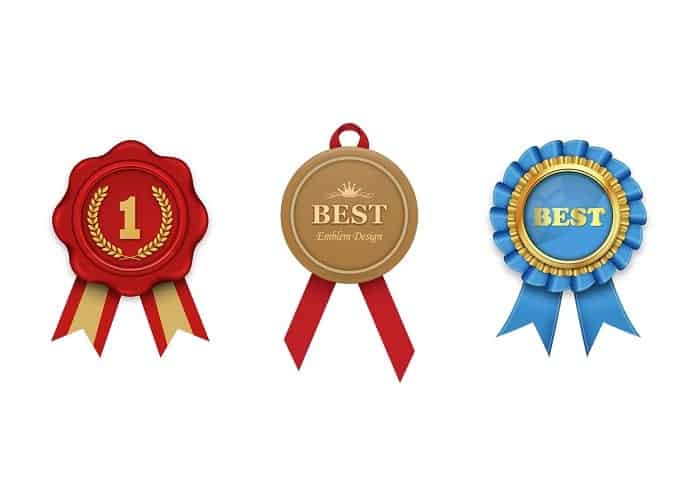“Alcoholism is not a mysterious illness, nor is it “willful misconduct.” Alcoholism is a true medical disease rooted in abnormalities in brain chemistry—biochemical aberrations that are inherited by the great majority of alcoholics, and in some cases, acquired through intense and sustained exposure to alcohol and other drugs. When the alcoholic something different happens.” ~Katherine Ketcham and William F. Asbury, Beyond the Influence: Understanding and Defeating Alcoholism Alcoholism is a disease of several causal and influential factors—genetics, environment, trauma exposure, comorbid disorders, and personal behaviors, just to name a few—so it should come to an as little surprise that there are many different treatment strategies.
Alcoholism is Incurable but Manageable
There is NO cure for alcoholism, but it IS possible to arrest the disease, manage its symptoms, and return to a healthy, happy, and productive life. As with any other chronic health conditions such as diabetes or hypertension, effective management requires:
- Early intervention
- A personalized treatment plan
- Medication-Assisted Therapy (MAT)
- Lifestyle changes
- Support from family and friends
- Aftercare
Common Treatment Approaches for the Treatment of Alcoholism—AND Their Effectiveness
Typically, there are two types of clinical approaches to the treatment of an Alcohol Use Disorder (AUD)– psychosocial (counseling) and pharmacological (medication). These approaches have been proven to be most effective when used in combination. Counseling should serve as the primary therapy, with MAT used to reduce cravings and promote increased and continued abstinence. https://www.northpointrecovery.com/images/blog/wp-content/uploads/2016/11/12-steps-of-na-600×300.jpg
What Medications Are Used for the Treatment of Alcoholism?
There are currently three medications approved by the Food and Drug Administration for alcoholic treatment programs, but only about 20% of patients receive any of them.
- Naltrexone (Trexan)–Blocks opioid receptors in the brain, thereby reducing both the pleasurable effects of and cravings for alcohol.
- Fewer patients experiencing relapse – 38% versus 60% for placebos
- Fewer patients returning to drinking
- Decreased alcohol cravings
- Fewer days per month spent drinking
- Acamprosate (Campral)–Targets areas of the brain associated with alcohol abuse and protects neurons from the destructive effects of alcohol withdrawal.
- Versus placebos, produced significantly rates of continued abstinence at 3, 6, and 12-month thresholds.
- Disulfiram (Antabuse)– Is used for “aversion therapy” because it makes a person violently ill if they consume alcohol—
- Flushing
- Headache
- Profuse vomiting
- Hyperventilation
- Weakness
- Blurred vision
- Vertigo
In addition, there are other medications that, while not specifically authorized by the FDA for alcoholism treatment, have nonetheless shown some promise.
- Fluoxetine (Prozac) –Usually prescribed for alcoholics who have comorbid depression.
- Topiramate (Topamax) – Reduces frequency of drinking and increases length of abstinence. 26% more abstinent days than placebo.
- Ondansetron (Zofran) – Produces frequency of drinking and increases length of abstinence. Greater percentage of days abstinent – 70% versus 50% for placebo.
- Nalmefene (Revex)– A lower rate of relapse – 37% versus 59% for placebo.
https://www.northpointrecovery.com/images/blog/wp-content/uploads/2017/05/drug_abuse_on_Southern_Charm-600×400.jpg
What Behavioral Therapies Exist for the Treatment of Alcoholism?
MAT can be a valuable tool to reduce or stop drinking, but the best way to achieve successful, long-term sobriety is by focusing on changing the alcoholic’s mindset and behaviors concerning alcohol.
- Cognitive-Behavioral Therapy (CBT)–Can be used in a one-on-one counseling session or in peer group therapy. CBT has several goals:
- How to identify “triggers” – feelings and situations that may lead to excessive drinking
- How to manage stresses that could result in relapse
- To change thought processes about the role that alcohol can play in one’s life
- To develop coping skills to provide alternatives to excessive drinking
- Motivational Enhancement Therapy–Frequently used over the short-term to:
- Reinforce the alcoholic’s motivation to change
- Identify the pros/cons of treatment for alcoholism
- Creating a plan of recovery
- Increasing confidence in one’s ability to get sober
- Developing sober life skills
- Couples and Family Counseling– Because an alcoholic’s loved ones play for the role successful recovery, this type of counseling focuses on:
- Educating family members about the disease of addiction
- Repairing and improving relationships
- Effective condition
- How to “fight fairly”
- Parenting skills
- Ending codependency and enabling behaviors
- Dealing with relapse
In addition to professional treatments, many alcohol rehab programs also strongly recommend regular attendance at 12-Step fellowship mutual-help groups. Although they aren’t professional in nature, there is still evidence for their inclusion in a plan of recovery. A 16-year study involving participants who were Alcoholics Anonymous members concluded that fellowship groups had success rates for eight-year abstinence roughly equivalent to formal treatment programs. More importantly, the study concluded that individuals who participated in both formal treatment and AA have higher rates of success than formal treatment among – especially during the first three years of treatment. The important thing to remember about all of these approaches are that they are ALL evidence-based, meaning that their philosophies and implementation are based on hard, measurable science derived from real data. What all of that means to YOU is this – if you want to quit drinking, there is real help available. To get started on your own personal journey of recovery, make a call to a reputable local alcohol treatment center today.




